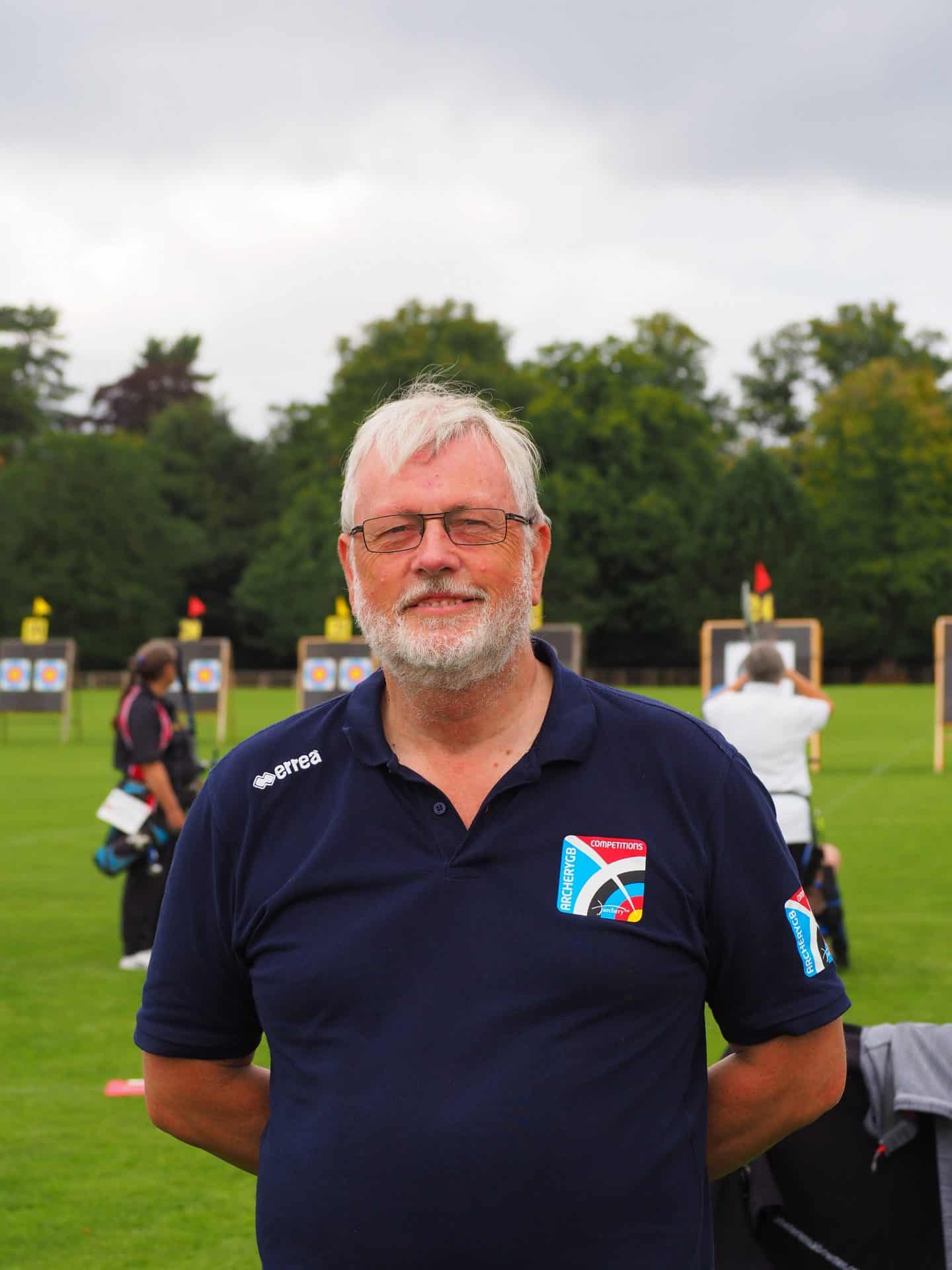The obstacles that a disabled person has to overcome just to leave home and get themselves set up to shoot are numerous, all before they have even taken aim. Coach Steve Millward tells us about his role in helping disabled archers at the range.

I've been in archery since 1992. My profession is in carbon fibre composites, and I'd been working with Keith Gascoigne, one of the UK's top bowyers, to help him develop some carbon fibre limbs. Keith taught me the basics of shooting so that I had a better idea of the bows we were developing, and I quickly realised archery was an ideal family sport. Keith's wife Christine kindly taught my family how to shoot and we've been archers ever since - my wife and I are both now Level 3 coaches at Jolly Archers of Houghton & Wyton in Cambridgeshire. Over the last two years we've sadly lost two great coaches from the club, Bob Smith and Helen George, so I was asked to take over.
In 2010 I started to help coach a young lady in a wheelchair at our archery club. She was a member of the British Wheelchair Archery Association (BWAA) and that's where our association with the organisation began.
[caption id="attachment_29086" align="alignnone" width="225"] Steve Millward[/caption]
I think a lot of coaches are put off from working with people with disabilities, which is a pity as it's highly rewarding. The most important thing is to understand the archer's disability and limitations - everyone has different requirements. The main challenge we have is that some archers have very little feeling below the waist so stability in their chair and positioning the bow correctly can be tricky. Quite often it's about achieving good posture in the chair, making adjustments so that they can shoot comfortably. Sometimes we meet archers who have two wheelchairs: one for everyday use and one for sport. A lot of wheelchair archers find it easier to shoot compound bows which are shorter, have a fixed draw, and therefore don't tend to interfere with their chair.
Coaching disabled people is also fulfilling because we often end up throwing the rule book out the window just to help someone shoot! We'll be creative with adapting equipment to suit the individual, which is where coaches with technical backgrounds can be particularly helpful. We try and keep costs down by doing the work ourselves; this is particularly important for young archers who are still growing as we're constantly having to make adjustments to their kit.
At clubs around the country, work is ongoing to improve access to the range for disabled archers - we're getting there though. The good thing is there's generally always someone around to help where needed.
We're looking forward to restarting our series of winter weekend shoots within the BWAA at Stoke Mandeville, when we invite archers with disabilities to come along. We have a team of coaches with specialist knowledge on hand who can give the archers the guidance they need, and make it possible for everyone to enjoy the sport.
Shooting star
Teenage recurve archer, Hannah, has Ehlers-Danlos Syndrome, and her joints dislocate every single day. She said: Â"It's a challenge having to remember everything that I have to do: my breathing, my posture, whether my feet are in the right position to be able to balance myself in the chair, and making sure my arms don't dislocate while I'm shooting. I'm in pain every day even with painkillers. At one competition I had my mum holding my shoulder in place just so I could shoot. I shot the whole event like that. My mum made it possible for me - I'm so thankful for her - she's been amazing because she finds a way for me to do things that seem impossible.”
[caption id="attachment_29085" align="alignnone" width="300"] Hannah enjoys the competition circuit[/caption]
And what makes a good coach? Â"Being able to adapt. For example, I need my coach to consider how we can prevent my shoulder dislocating during shooting. It's important to have the support of someone who can take the time to get to know me and understand my issues.”
Ways into coaching disabled people
Steve's advice: Â"Contact the BWAA or try and find a club with disabled archers where you can go and observe, help out and get some experience. Normally, archers are happy to discuss what their issues are so you can start formulating an idea of how you can adapt things to help. I'd encourage anyone to get involved.”